12 products
- Rosé Wine
- Cinsault, Grenache, Syrah
- Organic, Vegan-Friendly
- Dry
- Medium Bodied
- 750ml
- 13.5% alc./vol
About the Winery
Mas Carlot

Mas Carlot is situated in the south of the Rhône Valley, extending across 76 hectares of pebbly land southeast of Nîmes. Originally a 17th century farm, this beautiful estate was resurrected in the 1960's by the Blanc family—it is currently run Cyril Mares of the neighbouring and equally reputable property, Mas Bressades.
The appellation of Costières de Nîmes used to be considered part of eastern Languedoc but the climate, soil, topography and wine are far closer to those just over the river in the Southern Côtes du Rhône. It is now a region very much on the up and is widely recognized as a great source of excellent value wine.
- Rosé Wine
- Cinsault, Grenache, Syrah
- Dry
- 750ml
- 12.5% alc./vol
About the Winery
Maison Idiart
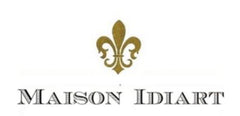
Maison Idiart is a wine négociant based in Bordeaux and established in 2013. Nicolas Idiart, winemaker and founder of Maison Idiart, grew up with a passion for wine, something that he shared with his father and grandfather.
He graduated from Bordeaux winemaking school in Blanquefort at 19 years old. Nicolas' love for Loire wines took him to work in Chinon, Touraine and Muscadet. He also had experiences in Australia and New Zealand. After several years travelling the world, he decided to shift his work in the industry and work in sales, focusing in North America.
At 33 years old, after 7 years working in sales, he decided to go back to winemaking with an artisan approach, making small batches of handcrafted wines.
- Rosé Wine
- Prieto Picudo
- Sustainable, Vegan-Friendly
- Dry
- Medium Bodied
- 750ml
- 13.5% alc./vol
About the Winery
Bodegas y Viñedos Pardevalles
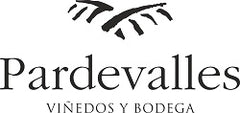 Pardevalles is recognized for being one of the driving forces behind the D.O Tierra de León, betting on the development of the indigenous grape varieties Prieto Picudo and Albarín Blanco. In 1949 Rafael Alonso founded Pardevalles continuing with the family tradition of growing grapes and making wine. The winemaking tradition in León goes back more than 400 years, famous for its centuries-old caves where wine was originally made.
Pardevalles is recognized for being one of the driving forces behind the D.O Tierra de León, betting on the development of the indigenous grape varieties Prieto Picudo and Albarín Blanco. In 1949 Rafael Alonso founded Pardevalles continuing with the family tradition of growing grapes and making wine. The winemaking tradition in León goes back more than 400 years, famous for its centuries-old caves where wine was originally made.The vineyards of Pardevalles are located between 750 and 820 metres above sea level, in an area with a Continental climate. They grow in poor, rocky alluvial soils which helps maintain the freshness in the wines. The philosophy of the Estate is grounded in making wines which express the character and identity of their origin, with a deep respect for the earth and the indigenous varieties of grape, combining tradition, innovation, and hard work.
Press Reviews
WineAlign
90 points - Sara d'Amato
Pours a luminous, deep pink, this rosada from Leon is made entirely of the indigenous prieto picudo grape, more typically a blending variety with dark skins and often resulting in wines with licorice-tinged black and red fruit. With youthful exuberance and potency, this salty and succulent expression features a wealth of lightly candied red berries, slippery tannins and a touch of welcome bitterness that contributes balance and a sensation of freshness. Best to enjoy in its youthful condition but it has the concentration for another year or two of aging. Tasted February 2024.
- Rosé Wine
- Cabernet Franc, Pinot Noir
- Sustainable, Vegan-Friendly
- Dry
- Light Bodied
- 750ml
- 12.0% alc./vol
About the Winery
Leaning Post
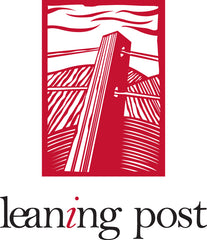
A leaning post is what you find at the beginning of a row of grapes, anchoring the wires that are the frame-work for growing grapevines. It is the beginning of an obsession to translate a time and place into liquid. Leaning Post wines take you to that beginning by finding small, unique plots of land in Niagara and putting them in bottle. Because after stripping away all the fancy buildings and high-tech equipment you are left with a place on this earth that grows wine unlike any other. When you taste that in a glass you just know it. Nadia and Ilya have had to rely on the support of family, friends and financial institutions to make the dream of owning a winery a reality. Leaning Post began as a virtual winery and is so proud to now have the quaint tasting room at 1491 Hwy 8 on their home property in Winona, Ontario.
Ilya and Nadia are the brains and passion behind Leaning Post Wines. It started with a dream to take unique, interesting single vineyard blocks in Niagara and turn them into distinctive, terroir driven wines. Nadia and Ilya first met in their hometown of Winnipeg, MB where their passion for wine and each other was born.
Ilya has been a winemaker in the Niagara Region for the last 17 vintages working at Daniel Lenko Estate Winery, Foreign Affair and now at Leaning Post Wines. Ilya is also a consulting winemaker at the Good Earth Winery. Ilya’s true passion in life is to make world renowned wines from Niagara that really showcase the distinct terroir that Niagara offers.
- Rosé Wine
- Nerello Mascalese
- Sustainable, Volcanic
- Dry
- Light Bodied
- 750ml
- 12.5% alc./vol
About the Winery
Azienda Agricola Tornatore
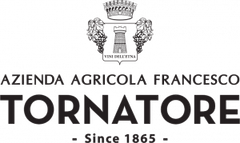
Out of a Sicilian family heritage that traces back to the 17th century, the Tornatore’s Mount Etna wine ventures began in 1865. Today the family’s operations are headed by Giuseppe Tornatore, a businessman whose expertise led to the acquisition of some of the region’s finest north-facing vineyards in the early 2000’s. That heritage and the Tornatore’s profound respect and understanding of the land is showcased in wines that capture the essence of Etna, deftly balancing concentrated flavors, complexity, freshness and refinement.
The company lies in the northern side of Mount Etna, the highest active volcano in Europe. The soils have volcanic origin and were created through the disintegration of lava, ash and stones from previous volcanic eruptions. The climate on the northern side of the Etna is characterized by mild temperatures, and more rain fall reflecting the influence of the Volcano. The combination of soil, climate and the skill of the winemakers, have made the northern slope of Etna an ideal area for the production of high-quality wines. “Our vineyards and our winery are only a few kilometers from our family home. Our entire family is rooted there. We have the greatest respect for this region, and we believe we have a responsibility to be stewards of Etna and to reflect its distinct character in our wines.” - Giuseppe Tornatore
- Red Wine, Rosé Wine, White Wine
- Chenin Blanc, Cinsault, Glera, Grechetto, Grenache, Pinot Grigio, Piquepoul Blanc, Sangiovese, Sauvignon Blanc, Syrah, Tempranillo
- Sustainable
- Dry
- 750ml
About the Winery
Cantina Cenci
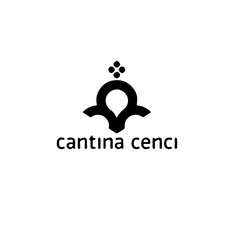
The Cenci Family has been dedicated to viticulture for over four generations, continuing to cultivate the vine with deep respect for the traditions and unique characteristics of the land once owned by the Olivetan monks. In the early 1950s, Mario—an enlightened and forward-thinking agricultural expert, and grandfather of Giovanni—selected clones of Grechetto, Sangiovese, and Malvasia from vines once cultivated by the Olivetan monks and traditionally grown intertwined with mulberry trees. He planted the first vineyards of the estate, and the wines made from those grapes were of such outstanding quality that he secured a long-term contract to supply Grechetto and Sangiovese in traditional flasks to the restaurant of a prestigious hotel in Perugia.
In 2012, following two years of renovation of the farmhouse, the new winery was inaugurated under the guidance of Mario Cenci, architect and brother of Giovanni. Thanks to cutting-edge equipment and winemaking techniques—combined with deep respect for tradition and the passionate leadership of Giovanni Cenci (viticulturist, enologist, food biotechnologist, and sommelier)—Cantina Cenci today produces wines appreciated by a niche audience of expert consumers.
The perfect balance between tradition and innovation has shaped a strong and distinctive brand identity.
Château de Montfaucon

Just across the Rhone river from the beautiful vineyards of Chateauneuf-du-Pape, the Lirac appellation extends itself on the low hills alongside the river. The history of Château de Montfaucon dates back to the 11th century when the castle's first tower was built. The castle's role in history was strategic; the Rhône River was the border between the French Kingdom and the Holy Roman German Empire. Montfaucon was one of many castles and fortresses along the Rhône River constructed to guard the border.
Rodolphe de Pins took over the family estate of Montfaucon in 1995 and subsequently rebuilt the winery and began practicing sustainable agriculture. He honed his winemaking skills in Barossa at Henschke and Vieux Telegraphe in Châteauneuf du Pape before returning to Lirac, so needless to say, his familiarity with the local varieties is well established.
Château Haut-Grelot
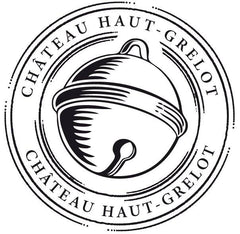
Château Haut Grelot is located in Saint Ciers Sur Gironde, approximately 50 kms north of Bordeaux, on the right bank of the Gironde Estuary. It was established by the Bonneau family in 1922 and now run but the 4th Generation. Today Château Haut-Grelot comprises 58 hectares of vineyards and is run by Céline and Julien, who was recently awarded the title 'Best Young Talent' in Bordeaux.
The vineyards are made up of sandy-gravel on the hillsides bordering the Gironde Estuary and sand-clay-silt on the hillsides further inland. Blaye Côtes de Bordeaux benefits from an ideal microclimate where there is a high level of sunshine and enough rain to guarantee the perfect environment for grape production. As a result the reds are fruity and concentrated and the whites are fresh, vibrant and delicate.
Conti Riccati
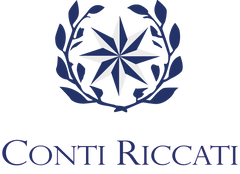 Conti Riccati is located in the rolling hills outside of Castelfranco, Veneto; in the province of Treviso. Their vineyards extend along 20 hectares inside a bigger property that has belonged to the Riccati family since the 14th century.
Conti Riccati is located in the rolling hills outside of Castelfranco, Veneto; in the province of Treviso. Their vineyards extend along 20 hectares inside a bigger property that has belonged to the Riccati family since the 14th century.Valperto Azzoni, his wife along and their four children are the direct descendants of the Riccati family and have the same enthusiasm and respect for the land, that their ancestors had in the past.
Conti Riccati grows mostly Glera, Pinot Gris and Pinot Noir though they are most known for their Prosecco.
The winemaker, Salvatore Lovo and the agronomist, Giovanni Pascarella take great pride in making the wines and tending the vineyards for the family. They practice sustainable viticulture and are currently in organic conversion.
Cortonesi

“I’m a lucky man who has been given the opportunity to realize my dream and continue my family’s efforts making wine in the land where I was born.” – Tommaso Cortonesi
Tommaso is third-generation winemaker at Cortonesi that owns some of the most prized vineyards in the north and south-east of Montalcino. Favourable geography, rocky soils, and ingenious winemaking all come together to create some of the region's deepest and most elegant Brunello wines.
The Cortonesi family has been making wine since the 1970s. At first, wines were made to be enjoyed by family, friends and neighbours, but then in 1985, Cortonesi had gained enough traction within their community that they began to offer their wines commercially. Today, Cortonesi remains a family business that continues to work according to tradition, while employing modern technologies to the enhance the quality of their production.
Lovers of Sangiovese must experience “La Mannella”, a collection of wines exclusively sourced from Cortonesi's private vine land. This farm covers 56 hectares, eight of which are devoted to the production of some of the world's most coveted and age-worthy Brunello di Montalcino.
Pearce Predhomme

Pearce Predhomme is a collaboration of like-minded individuals from around the globe. Founded with a mission to build and import wines from our favourite appellations while offering an unequaled value/quality ratio for the sommeliers & wine buyers in Ontario. This is a project between Toronto Sommelier and entrepreneur Will Predhomme and Ontario wine importer Nicholas Pearce. They have partnered with Radford Dale in South Africa and NorthWest Wine Co. in Oregon to create these special cuvées.
Vitas
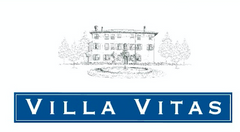
The Vitas Winery has been in the family since 1935, for four generations. It is located in the wine-producing area of DOC Friuli Aquileia, on a clayey-marly and sandy-calcareous soil (the so-called Magredi), one of the ingredients which, together with the influence of the sea and a friendly sun, create a perfect microclimate for vine-growing. A lot of importance is placed on conserving the environment and they use methods that protect their natural resources and the surrounding environment
- Rosé Wine
- Limniona, Mavroudi, Xinomavro
- Sustainable
- Dry
- Medium Bodied
- 750ml
About the Winery
Oenops
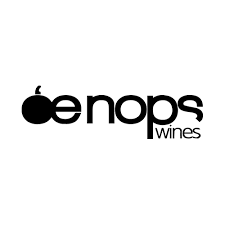
Founded in 2015, Oenops, meaning ‘wine face’, is a pioneering project whose mastermind is the talented winemaker Nikos Karatzas. Following the micro-négociant system, Oenops aims to produce high quality, great value wines. Rather than owning vineyards, the company sources grapes from selected plots across Greece’s best terroirs, with a focus on cool-climate sites and old vines of indigenous varieties.
At the core of the company’s philosophy is the close partnership with ambitious growers who share a same sustainability-focused approach. Oenops mission is to source great fruit and craft wines that fully express its quality and sense of time and place. By using simple methods, led by the profile of the grapes rather than by any winemaking protocols, the company has built a range of authentic, fruit-forward wines that bring out the best of each variety, terroir and style.
The team tastes meticulously and tailors its approach to each plot and variety, based on the core philosophy and ethos. By vinifying each plot and variety separately the team has grown an understanding of the specificity of each vineyard and of the work done each year, in turn allowing for improvement in each vintage.
A repertoire of indigenous grape varieties, such as Malagousia, Assyrtiko, Vidiano, Roditis, Xinomavro, Limniona, and Mavroudi, is expressed through different styles of Greek varietal wines and in labels that have gained widespread recognition, among consumers and critics alike.
What the team at Oenops strives for is, ultimately, to produce tasteful, elegant wines that work as perfect companions to every meal and special occasion.
Press Reviews
Wine Align
90 points (2021) - Michael Godel
Here Rosé is crafted from three local favourites, of xinomavro, limniona and mavroudi. Good trilogy of complimentary aspect and interaction, grape extract, salumi cure, red citrus and salinity all involved, integrated and in check. Definite rose and grapefruit essence, calm and pleasure guaranteed. Very Greek, island and sea. Drink 2022-2024. Tasted March 2022.
89 points (2021) - David Lawrason
This three grape rose blend of xinomavro, limniona and mavroudi is a smooth, balanced, dry rose with pale pearl pink colour, a clean, floral nose with ground cherry, strawberry and fine herbs. It is light to medium bodied, fresh and lightly mineral. The focus and length are excellent. Tasted March 2022
89 points (2021) - John Szabo, MS
Like the Apla red from Oenops, the rosé is blend of Greek natives xinomavro, limniona and mavroudi, rendered here in a pale copper-orange colour, with a lovely, fresh, crunchy, tart red fruit-inflected nose. The palate is dry and crisp, with some waxy and savoury flavours, balanced-fresh acids and good length. A pleasant and crunchy rosé all in all, with solid flavour definition. Drink now or hold short term. Tasted March 2022.
- Rosé Wine
- Gamay
- Sustainable, Vegan-Friendly
- Dry
- Medium Bodied
- 750ml
- 13% alc./vol
About the Winery
The Farm

“The Farm” is a 10-acre vineyard in Niagara’s Twenty Mile Bench, planted to Pinot Noir. The Neudorf vineyard was originally planted with Pinot Noir in 2000 for Le Clos Jordanne and aptly named “La Petite Colline”, meaning “little hill”, a nod to the gentle slopes that permeate the plot.
The property is rooted in traditions of gathering family & friends, and where Peter and Dora Neudorf call home .
The cellar door opens once a year for guests to taste new releases, and enjoy live music and local food.
- Rosé Wine
- Pinot Noir
- Dry
- Light Bodied
- 750ml
- 12% alc./vol
About the Winery
Keint-He

Keint-he Winery & Vineyards is a boutique winery located in Prince Edward County. The winery has a strong focus on varietals that are typically grown in Burgundy, specifically Pinot Noir and Chardonnay; through which they truly express the best of the County with wonderful individual expressions. Keint-He’s approach to winemaking is as down-to-earth as it gets and their quality is second to none.
- Red Wine, Rosé Wine, White Wine
- Lambrusco di Sorbara, Olaszrizling, Pinot Gris, Pinot Nero, Pinot Noir, Riesling, Sauvignon Blanc, Tempranillo, Trousseau
- Sustainable
- Dry
- 750ml
About the Winery
Bideona
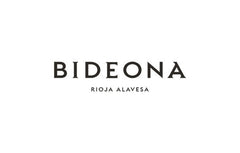
Bideona owns or manages over 300 parcels of extraordinary vines in villages throughout the Rioja Alavesa, the coolest, smallest and most Atlantic sub-zone of Spain’s most famous wine region.
The vineyards of the Rioja Alavesa are defined by parcels of old bush vines planted on terraces or hillside slopes with a high percentage of limestone. Located in the foothills of the Sierra Cantabria, Bideona’s vines have an average age of 50 years and many were planted in the 1920s, 30s and 40s, before high-yielding clones became available.
Bideona puts the focus firmly on terroir by making each wine in its Vino de Pueblo range as a field blend of Tempranillo and other native varieties from plots in an individual village. Each is named with an acronym – L3Z4 for Leza, L4GD4 for Laguardia, S4MG0 for Samaniego and V1BN4 for Villabuena – owing to DOCa Rioja regulations that only allow village names to be marked if both the winery and the vineyard are in the same location.
“Bideona’s reason for existence is to make wines that show the personality of the Rioja Alavesa and its historic wine villages” states company co-founder and director, Andreas Kubach MW. “We have access to a wealth of diverse plant material in our parcels of old vines, which we believe contributes to the complexity of the wines as well as the differences between villages.”
Domaine Baud Père et Fils

The history of Domaine Baud dates back to 1742, and it wasn't until 1950 when René Baud, the 7th generation, rebuilt the vineyard which had suffered from the phylloxera crisis and two World Wars.
Starting with only 4 hectares, the vineyard progressively expanded to 20 hectares with the help of successive generations. Now, managed by siblings Clémentine and Bastien, the 9th generation, the estate continues to flourish and grow, with a strong commitment to sustainable viticulture and preserving the traditions and style that makes the wines of the Jura so unique and incredible.
The estate achieved the Terra Vitis certification in 2014 for its eco-friendly work and environmental preservation.
Gilvesy Pincészet
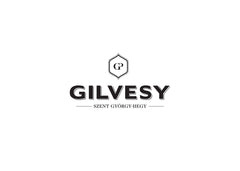
Hungarian expat Róbert Gilvesy moved back to his homeland from Canada, and began building the Gilvesy winemaking empire on the former Esterházy estate on Szent György Hill. Thanks to years of hard work, the Hegymagas-based facility now includes a modern building complex and about 13 hectares of vineyards, in addition to being the home of the family. The area is shaped by 6 million years old volcanoes, where indigenous and international varieties grow organically.
Robert’s absolute admiration for nature and the terroir translates into an immense respect for the environment. By farming using organic practices, the soils and the vines stay healthy. In the winery, by letting nature take its course without controlling the processes, and using local resources, such as Hungarian oak barrels, Gilvesy promotes and protects the Balaton region.
- Rosé Wine, White Wine
- Chardonnay, Glera, Macabeo, Pinot Noir, Poulsard, Xarel-lo
- Sustainable
- Dry
- 750ml
About the Winery
Conti Riccati
 Conti Riccati is located in the rolling hills outside of Castelfranco, Veneto; in the province of Treviso. Their vineyards extend along 20 hectares inside a bigger property that has belonged to the Riccati family since the 14th century.
Conti Riccati is located in the rolling hills outside of Castelfranco, Veneto; in the province of Treviso. Their vineyards extend along 20 hectares inside a bigger property that has belonged to the Riccati family since the 14th century.Valperto Azzoni, his wife along and their four children are the direct descendants of the Riccati family and have the same enthusiasm and respect for the land, that their ancestors had in the past.
Conti Riccati grows mostly Glera, Pinot Gris and Pinot Noir though they are most known for their Prosecco.
The winemaker, Salvatore Lovo and the agronomist, Giovanni Pascarella take great pride in making the wines and tending the vineyards for the family. They practice sustainable viticulture and are currently in organic conversion.
Domaine Baud Père et Fils

The history of Domaine Baud dates back to 1742, and it wasn't until 1950 when René Baud, the 7th generation, rebuilt the vineyard which had suffered from the phylloxera crisis and two World Wars.
Starting with only 4 hectares, the vineyard progressively expanded to 20 hectares with the help of successive generations. Now, managed by siblings Clémentine and Bastien, the 9th generation, the estate continues to flourish and grow, with a strong commitment to sustainable viticulture and preserving the traditions and style that makes the wines of the Jura so unique and incredible.
The estate achieved the Terra Vitis certification in 2014 for its eco-friendly work and environmental preservation.
Mas Codina
 The Mas Codina estate is located in the heart of the Alt Penedès region, comprising of low-lying plains and hills between 250 and 300 metres high.
The Mas Codina estate is located in the heart of the Alt Penedès region, comprising of low-lying plains and hills between 250 and 300 metres high.Until recently, the farm has always grown, and made a livelihood from, cereals, grapes, peaches and vegetables, as well as farm animals. Now, apart from century-old olive trees, all the land is devoted to vineyards.
Mas Codina has been in the same family for generations. They have adopted organic farming practices promoting natural processes and seeking a balanced ecosystem. All because of their love for land and tradition. There are currently 40 hectares of vineyards that are being organically farmed.
- Fortified Wine, Red Wine, Rosé Wine, Sweet Wine, White Wine
- Gouveio, Malvasía, Tinta Barroca, Tinta Roriz, Touriga Francesa, Viosinho
- Sustainable
- Residual Sugar: 80.00 g/l
- 50ml
- 18.5% alc./vol













